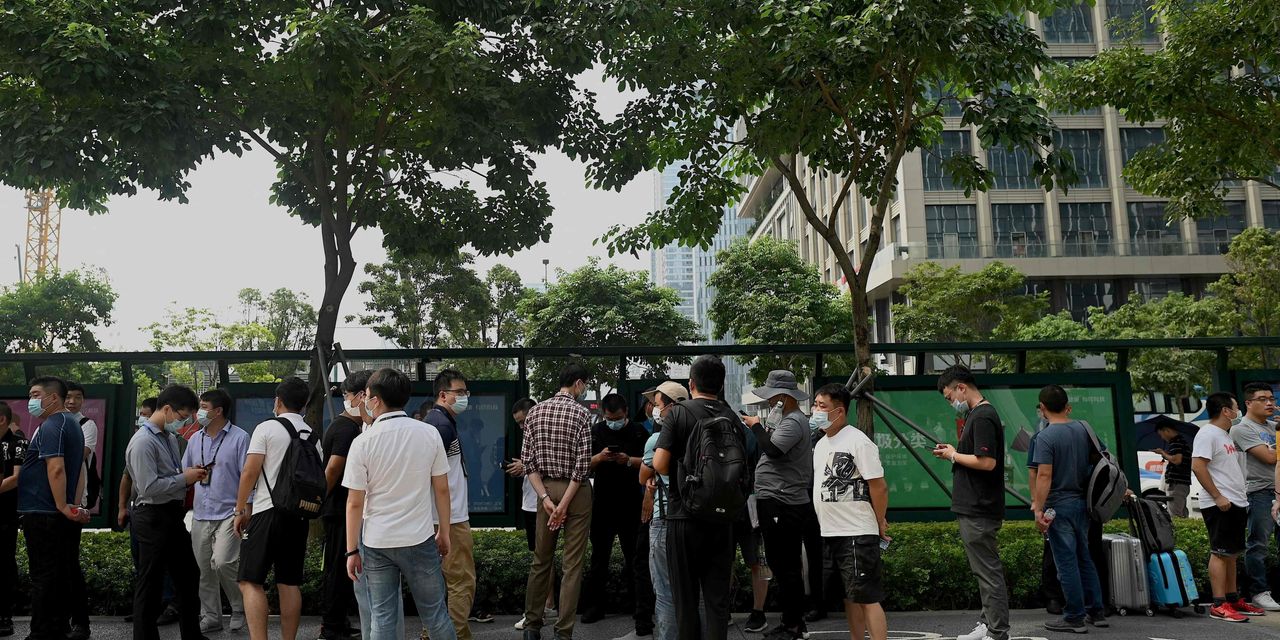
As Chinese property giant Evergrande continues to struggle, the battle for control of its assets is heating up. Who is still standing when the dust clears will say a lot about the future of China as a place to invest more generally.
Hong Kong listed China Evergrande Group has already defaulted on a portion of its offshore debt, and its bonds are still trading at deeply distressed levels. But the past week has witnessed two important developments.
First, following a letter from offshore debtholders threatening unspecified legal action, Evergrande Group announced Wednesday that it aims to release a “preliminary restructuring proposal” within the next half year. Second, the Financial Times reported Thursday that Los Angeles-based Oaktree Capital has moved to seize a large chunk of Evergrande’s Hong Kong property, worth an estimated $1 billion, against a secured loan now in default—a property which could have potentially served an important role in Evergrande’s general offshore debt restructuring. Oaktree has another secured loan to a separate Evergrande mega-project onshore, according to the FT.
Meanwhile, since the company has managed to avoid a technical default onshore thanks to negotiations with creditors there—who may ultimately be expecting some roundabout assistance from Beijing—money continues going out the door for operations and Evergrande continues to spend to build apartments owed to its customers.
That raises the risk that, by the time secured offshore creditors like Oaktree also collect and a formal restructuring proposal from Evergrande arrives, there might not be many scraps left to fight over.
To be sure, many offshore bondholders’ predicament is partly of their own making. Rating agency Moody’s notes that covenants on Evergrande’s bonds—limiting, for instance, the amount of leverage that subsidiaries could take on and constraining dividend payments—have been significantly weakened over the past decade. And holding the unsecured debt, in particular, of a highly levered company like Evergrande which has most of its assets onshore under the auspices of its mainland subsidiaries was always inherently risky.
Still, if Evergrande’s offshore bondholders do get roundly stiffed, it is difficult to deny that the optics for China as a place to invest writ large are terrible—especially given what holders of U.S.-listed Chinese educational and internet technology stocks have experienced over the past 12 months.
Demand for Chinese corporate dollar debt, previously an important funding source both for regular companies and Chinese local governments through their corporate fundraising vehicles, could take a large and permanent hit. And if Oaktree decides to chase the onshore Evergrande project through the Chinese courts and fails, it would be a damning indictment of the business environment for foreigners in general.
Yet Chinese borrowers and debt investors, outside of real estate at least, don’t seem to be paying a toll for foreigners’ treatment at the moment: Prices of both investment grade and high-yield debt onshore have generally drifted upward since late 2021 as monetary easing has gained steam and confidence has grown that onshore, at least, systemic Evergrande-related turbulence can be averted.
Little wonder many offshore investors are gnashing their teeth.
Write to Nathaniel Taplin at [email protected]
Copyright ©2022 Dow Jones & Company, Inc. All Rights Reserved. 87990cbe856818d5eddac44c7b1cdeb8








